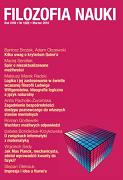Zagadnienie bezpośredniości dostępu poznawczego do własnych stanów mentalnych
The Problem of the Directness of the Cognitive Access to One’s Own Mental States
Author(s): Anita Pacholik-ŻuromskaSubject(s): Philosophy
Published by: Uniwersytet Warszawski - Wydział Filozofii i Socjologii, Instytut Filozofii
Keywords: direct cognition; first-person-authority; self-knowledge; self-consciousness; representation; mind-body problem; reductionism in philosophy of mind
Summary/Abstract: The question of subject’s cognitive access to his own mental states contains an assumption, that this cognition is direct and authoritative, what is also a condition of subject’s self-knowledge. The directness means, that this kind of cognition is not burdened by the intermediaries as Fregean senses or representations. Now arises the problem, how the self-knowledge, which has a propositional character can be direct, hence nonrepresentational. In this paper I considered the three kinds of representations, which are present in self-knowledge and I have tried to answer the question, whether it is possible to preserve the directness of self-knowledge, despite of its representational constituents. First I have asked about the representation of self, then I assumed that to have self-knowledge a subject has to conceptualise his state as a belief or other experience of a certain kind and he has to think about himself as a subject of this state. Then I considered the representation of the modality of the state. Finally I analysed the representational character of the content of mental states. The conclusion of these investigations was that even if the self-knowledge in its epistemological aspect is representational (for example because of its propositional structure) it preserves its directness in its essential form, i.e. psychological aspect.
Journal: Filozofia Nauki
- Issue Year: 18/2010
- Issue No: 1 (69)
- Page Range: 53-66
- Page Count: 14
- Language: Polish

